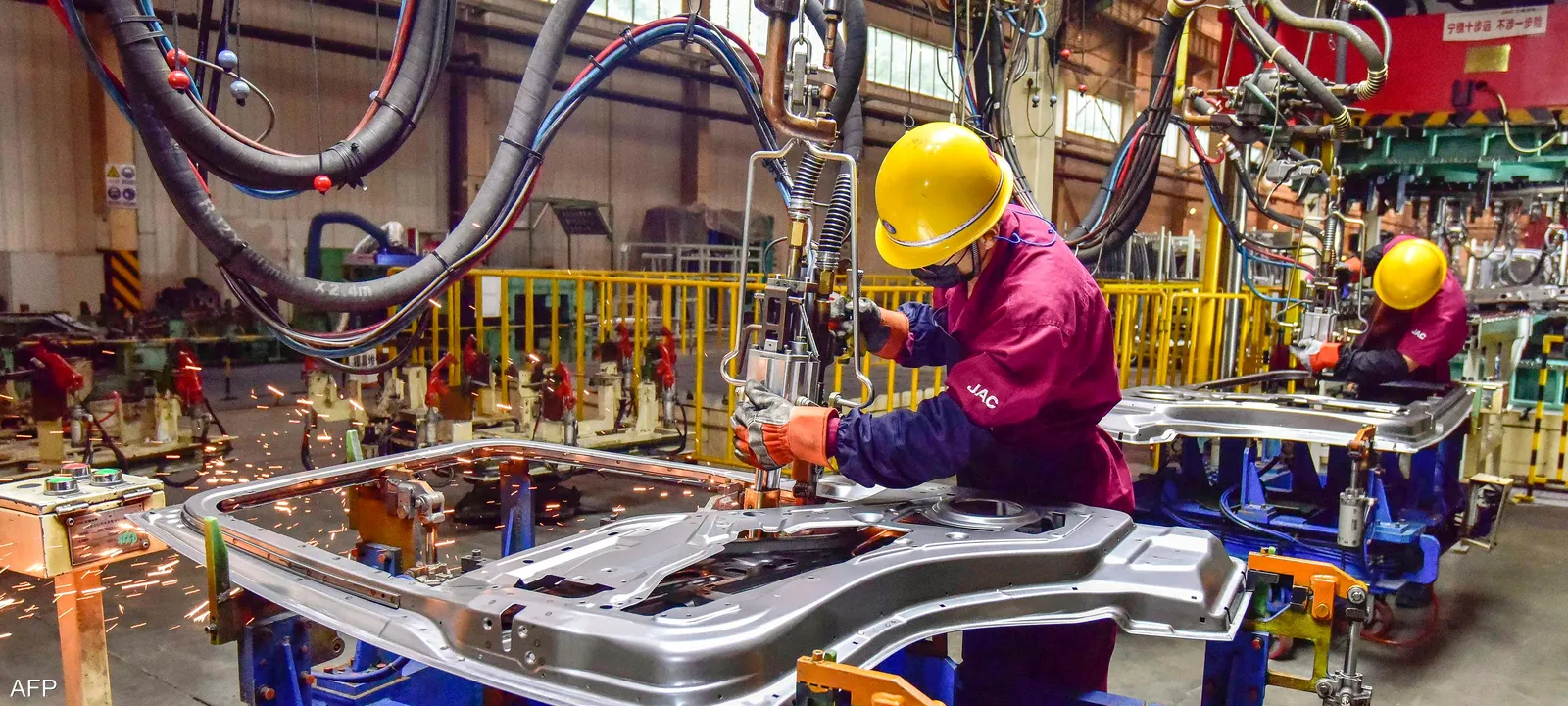Factory workers in southern China are already witnessing the first effects of the heavy tariffs imposed by former U.S. President Donald Trump on Chinese goods, as orders plummet—threatening their ability to maintain a foothold in the U.S. market.
The burden of these new tariffs is particularly felt in Guangdong Province, China’s manufacturing powerhouse, where thousands of factories churn out everything from clothing to electronics. For decades, this region has been the driving force behind China’s economic growth through its unmatched low-cost mass production.
However, Trump’s efforts to revive American manufacturing and his aggressive trade war against Beijing may upend this long-standing equation.
Factories Hit Hard
Xiao Junyi, a 24-year-old textile factory owner in Guangzhou, the capital of Guangdong, told AFP that the U.S. market makes up 20–30% of his orders. “The tariffs are having a clear impact on us,” he admitted, pointing to a sharp drop in both sales and orders.
Xiao sells part of his output to American consumers via Temu, a low-cost online retail platform owned by China’s PDD Holdings. Following new tariffs that reach 145% on most goods, and up to 245% in some cases, Temu issued a memo announcing a reduction in promotional spending in the U.S., Xiao reported.
Endless Competition
Now, Xiao is seeking alternatives beyond the U.S. market, saying, “We can trade with the entire world.” Still, he acknowledges that no market can fully replace the United States, adding, “The U.S. remains a major advanced country with far bigger orders than others.”
Nearby, the Canton Fair—a major biannual trade show—was underway. It traditionally offers global buyers a chance to connect with Chinese manufacturers and explore supply chain options. This year, however, American buyers were notably scarce, and those who did attend declined to answer reporters’ questions about the impact of the trade war.
Among the exhibitors was Wosen Lighting Technology, a supplier of LED lighting products—many of which are sold via Amazon. Andy Lin, head of business development at one of the company’s plants, called the situation “a new chapter in the trade war” and lamented the relentless competition and rising tariffs.
“This situation can’t go on,” she warned. “The consequences are already affecting many countries—and will especially hurt the everyday lives of Americans.”
Broader Economic Risks
The slowdown in exports to the U.S. may also hit China’s industrial employment. Companies like Wosen employ hundreds of workers. In the Guangdong factories visited by AFP this week, production lines were in full swing, but managers admitted the trade war has negatively impacted their operations. Many now hope to cultivate new customers beyond the U.S..
Meanwhile, Federal Reserve Chair Jerome Powell warned this week that Trump’s tariffs could lead to higher inflation in the U.S., pushing up prices for American consumers.
In contrast, China’s tariffs on U.S. goods are expected to have a limited impact on Chinese consumers, according to Andy Lin. “I don’t use many American products,” she said, noting that she shops mostly on Chinese platforms that rely on domestic manufacturing.
“All these goods can be made in China in the end,” Lin concluded. “The consequences will be very limited—unless you’re after very specific American items.”




















